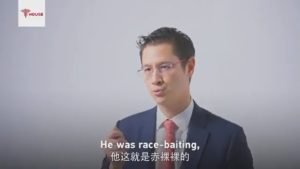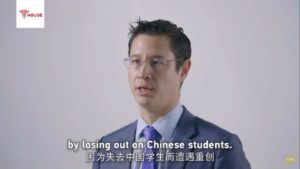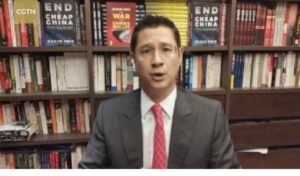|
|
| English: Orthographic map of the Australasian part of Oceania: Australia, New Guinea, Island Melanesia, and New Zealand, but excluding the Maluccas. (Photo credit: Wikipedia) |
More than once the
+China Weekly Hangout has been asked to change its regular broadcasting hours, so people from the time zones in
Australia and New Zealand can also join. As an experiment we will host coming Monday, 13 May, a planning session with adjusted times, to test the water.
Both Google+ users from the region, and those with a link to Australia and New Zealand living in China are cordially invited to join. Feel free to share this announcement with others.
The hangout will take place on Monday 13 May, 9am CEST, 5pm
Beijing Time, 9pm New Zealand, 7pm (Australia, Sydney).
In that session we will discuss subjects and the best way to now and then include Oceania into your hangouts.
A few subjects have already emerged (thanks to
+Simon Young ): the Chinese influence on the dairy industry and Chinese tourism into Australia and New Zealand. A third subject emerged this week:
has China become Australia's frenemy?
On Monday we want to figure out what subjects do appeal to the visitors of our hangout, and whether we can get a few people in who can make sense out of these subjects.
During the event you can watch not only the show here, but also at
our live YouTube page. No event? You will be redirect to our entry page.
You can leave your comments and suggestions here or
at our event page; also you can register at our event page for participation. If you are interested, do sign up for our
+China Weekly Hangout page.
You can check out our previous hangouts here.
Are you new to Google Hangout? It is all very easy, and you only need an internet connection, a webcam and a mic. Feel free to sign up at my account at
+Fons Tuinstra so we can set up a dry run and test your settings and add a few useful goodies.
The regular China Weekly Hangout is holding on May 9 an open office, where you can discuss current affairs in China or suggest subjects for hangouts later this year. You can read our announcement here, or register for the hangout here.
Regular China Weekly Hangouts take place at 10pm Beijing Time, 4pm CEST (Europe) and 10am EST (USA/Canada).
Earlier we organized a first session on Africa, and how China's media advance there, with veteran journalists
+Eric Olander of the China Africa Project, and
+Lara Farrar, previously working for both the China Daily and
+CNN International. Moderation by
+Fons Tuinstra, president of the
+China Speakers Bureau.


























